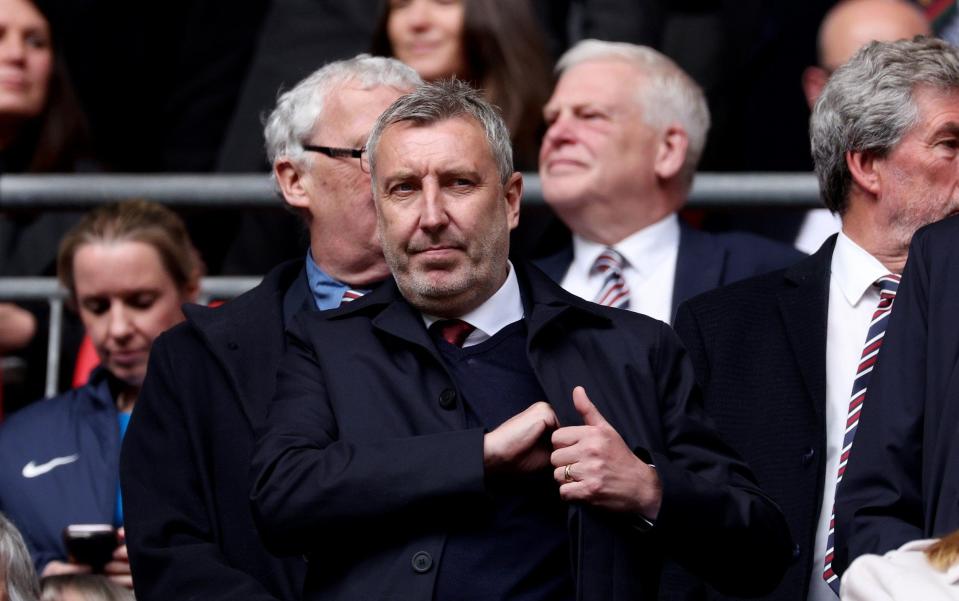How Jason Wilcox’s ‘game model’ aims to find Man Utd’s identity and end era of zombie squads

From Sir Alex Ferguson to David Moyes then Jose Mourinho via Louis van Gaal and now Erik ten Hag after Ole Gunnar Solskjaer, Manchester United have lurched violently from one style of play, system and manager to another over the last decade, too often without a great deal of thought about what they actually want to be.
Which is why the subject of Julian Nagelsmann is probably instructive in terms of illustrating how United under Sir Jim Ratcliffe plan to change and evolve, first and foremost by establishing a clearly defined “game model” – a cohesive playing style and identity – that permeates the whole club and breaks this cycle of incoherent hiring and, with it, flawed squad-building.
On Friday, Nagelsmann extended his contract with the German national team until 2026, ending any prospect of him returning to Bayern Munich this summer.
In the past, Nagelsmann has featured highly on United’s potential shortlists and even now you will find great admiration for the talented 36-year-old German in Old Trafford’s corridors of power. Indeed, perhaps one day they will beating down the door to try to entice him to M16.
But even before the German FA effectively took Nagelsmann off the table last week, and ignoring the manager’s own intentions, there was recognition among United’s new power hierarchy that their current squad is not set-up for a coach who often deploys a back three and open wing backs that attack.
In other words, they cannot swing wildly from one system to another just to fit a coach, for all his talents, and certainly not when they have yet to even begin the process of gradually unpicking a Frankenstein squad. First, they must settle on a way of playing they believe can deliver winning, attacking, entertaining football and then ensure the coach chimes firmly with that.
Enter Jason Wilcox, whose arrival as United’s technical director last Friday could prove to be one of the most significant appointments of the post-Ferguson era. Dan Ashworth will ultimately be the one who brings all the key football departments together as sporting director provided a compensation deal is agreed with Newcastle. Indeed, there is great hope Ashworth and Wilcox will form a potent alliance, even if the challenge they are taking on is enormous. But it is Wilcox who has principally been tasked with implementing an overarching playing vision and ensuring recruitment is no longer of the scattergun variety but anchored towards a specific methodology, identity and style of play.

Wilcox’s appointment was driven by Omar Berrada, United’s incoming chief executive who worked closely with the 53-year-old at Manchester City before the former Blackburn winger took over as Southampton’s sporting director in January last year. And it is not by chance that Ratcliffe and his Ineos team have looked to people with a track record of excellence. At City, the style of play is immediately apparent whether you are watching their Under-10s or first team. United want the same thing, even if it is too early to say precisely what that the so-called game model will be.
The biggest question, at least in the weeks to come, is where Ten Hag fits in all of this, if indeed he does at all. It has been a season of extraordinary turbulence at Old Trafford, embodied by United’s near fatal implosion against Coventry City in the FA Cup semi-final on Sunday when they threw away a 3-0 lead and were heading out before a VAR offside ruling spared them and they prevailed on penalties.
Wilcox will assess Ten Hag and give hierarchy answers
Wilcox will waste no time effectively auditing Ten Hag - his training, approach, wider outlook, relationship with the players - over the next month or so to establish if United’s troubles this season are mainly down to a crippling injury list and personnel issues and the Dutchman, with better support and more direction around him, can drive the team forward. There is a hope internally that will be the case and also give Wilcox and Ashworth time to settle, agree on a style of play and start recruiting towards that.
Without an obvious, stand-out candidate available to replace Ten Hag, any new manager would inevitably present their own risks and be joining at a time when the purse strings are likely to be tight. In many respects, it is a hospital pass of a summer.
Equally, Wilcox, Berrada and the Ineos team need to know if players are not tracking back or pulling their weight because they are not good enough to be at the club or there are other factors at play. What is Ten Hag’s messaging like? Is he tactically flexible? How are relations with the dressing room? What happens in training?
While there is an acceptance internally United have not had the defenders to play a high line, Ten Hag has persisted on operating with a high press that has left the team routinely exposed in midfield and Wilcox is likely to provide feedback on all of these sorts of questions for his superiors.
For his part, Ten Hag has expressed a clear willingness to work closely with the new broom and there is little doubt his hands have been tied this season owing to a catalogue of repeat injuries to key players. Despite that and United’s dismal league form, he has taken the team into a third final in two seasons and has a win percentage almost identical to Arsenal’s much trumpeted manager, Mikel Arteta. His supporters argue that with a fit squad, personnel improvements and an enhanced structure around him he will make United successful.
It remains to be seen if the club’s decision-makers ultimately feel the same way.

